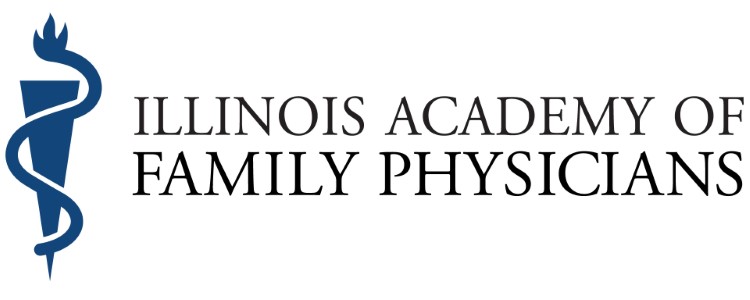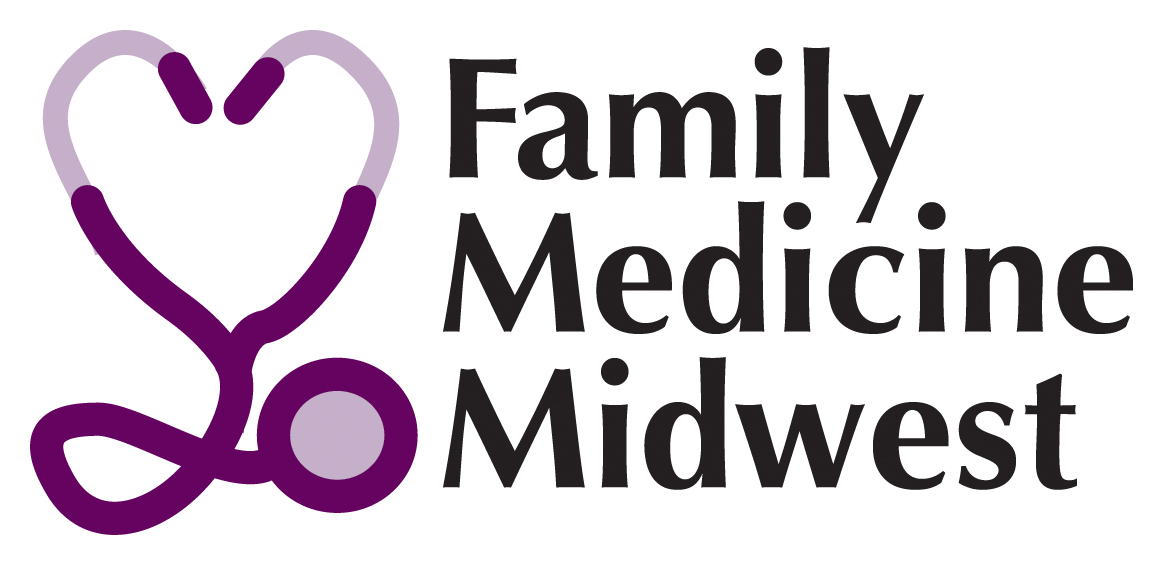Once the COVID-19 pandemic went from shocking arrival to ongoing reality, everyone’s meetings and conferences pivoted from live giant gatherings, to online experiences from home. Illinois AFP had already selected resident and student delegates and alternates for the annual Kansas City experience. The virtual format enabled the two residents and two students to “tag team” their responsibilities behind the scenes. Here is a summary from each.
Resident: Delegate Eric Sullivan, MD (Northwestern McGaw Family Medicine Residency in Chicago) and Stefani Beard, DO (West Suburban Family Medicine Residency in Oak Park)
The delegates from each chapter ultimately cast the chapter’s votes for every elected position live at the AAFP conference. This year, the candidate forum was held online and recorded on Saturday evening, August 1, and the delegates had several days to watch live or recorded and then cast the chapter vote online.
The candidate forum worked well and had only one minor technical snafu that support staff quickly remedied on the fly; an impressive accomplishment considering all the moving pieces. The questions presented to the candidates were provocative and timely, though future iterations would benefit from questions more tailored to the individual positions rather than used universally across all contests. In general, we felt all the candidates expressed significant enthusiasm and came well prepared for their presentations, but a few particularly impressed us with scope of their visions and track record of prior accomplishments. We successfully reached consensus on all our selections!
I (Eric) only had the opportunity to attend sessions on Saturday but really enjoyed the two I visited. The first, a rapid fire list of POEMs (patient-oriented evidence that matters) walked attendees through easily digestible, highly applicable bits of information – including the average length of pediatric URI symptoms, and how long you could consider holding out to see a benefit from an SSRI. The second, on the entire pre-, peri- and post-natal care course reminded me of the incredible breadth of family medicine and the natural way in which our specialty wraps an entire life event within our scope of practice.
Both of us spent a large portion of our conference time "staffing" our programs’ virtual exhibits. Zoom rooms became the primary avenue for students to pop in to ask questions, occasionally splintering off into mini breakout rooms when a large assembly formed, which helped keep the conversational atmosphere going. Both of us thought it all worked wonderfully. We each interacted with lots of interested students and talked about not only our own programs, but family medicine and the future of family medicine in general. Though nothing can quite compare to the “barely controlled chaos” of the in-person expo, the virtual version proved an excellent substitute and a truly invigorating experience.
Student Delegate: Leah Beth Carter (U of Illinois at Peoria) and alternate Nicki Patel (Chicago Medical School)
I (Leah) have been attending AAFP events since I was a little girl. My dad is a family physician, and our vacations were always conveniently planned for the same time and location as AAFP’s annual FMX. Almost twenty years later, as a second-year medical student, I had the opportunity to attend the National Conference for Students and Residents in 2019, where I was finally able to appreciate more than just the physical location of the conference. The experience intensified my passion for family medicine as I became even more fascinated with the ability to care for patients from the womb to the tomb and advocate for healthier, happier families.
I was looking forward to attending the conference again, in-person this year as the student delegate for the IAFP. However, COVID-19 put a virtual spin on the conference experience. Although a virtual conference was not what I had planned, my experience exemplified the very reason that I love family medicine. Attending virtually necessitated creativity, flexibility, and resiliency to maximize the event. Not surprisingly, these are attributes that make family medicine physicians successful.
I had already spent what felt like an eternity in front of my computer screen studying for USMLE Step 1 and participating in online clerkships. The on-demand education sessions from the conference enabled me to watch the courses at my own pace, allowing me to be physically present (and in full PPE) with my patients. I learned about how obstetric services provided by family physicians benefit rural areas from my on-call room as I waited for one of my patients to deliver her baby. I engaged in the online discussion forums during downtime in the clinic. I browsed the poster presentations and considered how similar community service projects might benefit my hometown. I proposed questions to my local mentors and attendings about compelling conference presentations. I was even able to participate in the yoga sessions to wind down after a full day of seeing patients!
The virtual conference also embodied the essence of a home visit. Growing up in a rural community, I understand how crucial a home visit can be in ensuring comprehensive medical care. Zoom-ing with residency programs evoked a similar sensation. Instead of a formal and noisy exposition hall, I chatted with individuals at their kitchen tables. Curious kittens pounced in and out of view. Toddlers played happily in the background. Their cries for attention reminded me of how excited I was at that age and wanted to participate in any event that seemed so important.
I can't help but look forward to a return to the camaraderie and energy of another in-person event. But the ability to watch, rewind, and replay the conference sessions and inspirational stories of successful family physicians has enabled me to bring the spirit of National Conference to my community this year. Being a family physician is about finding innovative solutions for complex problems. This year’s virtual National Conference was the epitome of how family medicine physicians refuse to let a global pandemic prevent us from making a positive impact on the world around us.



